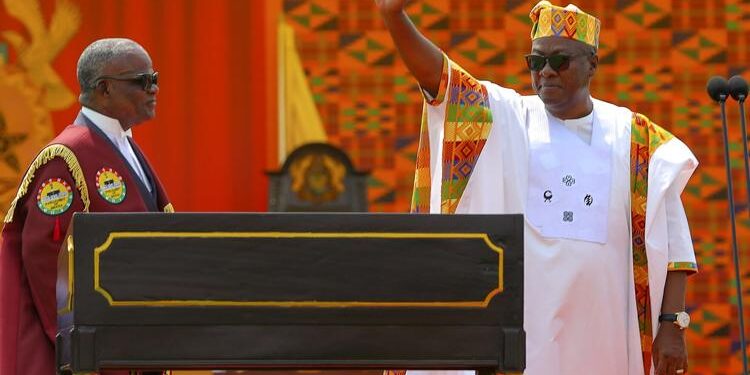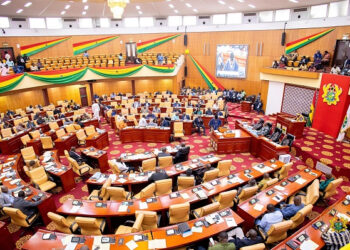Just a day into its tenure, the newly sworn-in National Democratic Congress (NDC) government is grappling with concerns over Ghana’s energy sector, amid allegations of inadequate fuel reserves left by the outgoing New Patriotic Party (NPP) administration.
The Fuel Reserve Debate
John Abdulai Jinapor, Yapei Kusawgu MP and former Deputy Minister of Energy, has sparked controversy with his claims that the NPP government failed to procure enough fuel to sustain power generation. According to Jinapor, existing reserves can only power the country for five hours, raising fears of imminent power outages.
“It is a critical challenge we must address immediately,” Jinapor remarked during the swearing-in ceremony of President John Dramani Mahama on Tuesday, 7th January, 2025.
Mahama’s Immediate Response
In a swift move to address these claims, President Mahama has convened an emergency meeting with energy experts and key stakeholders. The meeting is focused on evaluating the state of Ghana’s energy reserves and identifying solutions to prevent disruptions in electricity supply.
The President’s decisive action signals the administration’s intent to prioritize energy stability in its first days in office, despite the challenges inherited during the transition.
NPP Fires Back
However, Herbert Krapa, the outgoing Energy Minister, has dismissed the claims of a looming crisis, defending the NPP’s track record. In a statement, Krapa insisted that his administration left sufficient fuel reserves and accused the NDC of incompetence in managing the energy sector.
“Assertions of a looming crisis are baseless. We left adequate light crude oil and heavy fuel oil stocks for Cenpower and AKSA power plants, respectively,” Krapa stated.
He also urged the new administration to focus on proactive planning rather than assigning blame.
Broader Implications for the Energy Sector
This back-and-forth underscores the complexity of managing Ghana’s energy sector during political transitions. Experts suggest that energy policies require a long-term approach, independent of partisan divides, to ensure stability and public confidence.
Read Also: Ghana Suspends Ties with SADR, Signals Support for Morocco’s Sahara Initiative
Energy analysts are now looking to the Mahama administration for a comprehensive strategy to stabilize power generation and address systemic issues, such as fuel procurement and sector planning.
Public Expectations
With Ghanaians wary of potential disruptions, the government faces mounting pressure to act swiftly. The success or failure of its early interventions in the energy sector could shape public perception of the Mahama administration’s competence in tackling governance challenges.
As the administration sets its agenda, the energy sector will remain a critical area to watch, with the government’s ability to “keep the lights on” serving as an early test of its effectiveness.



























